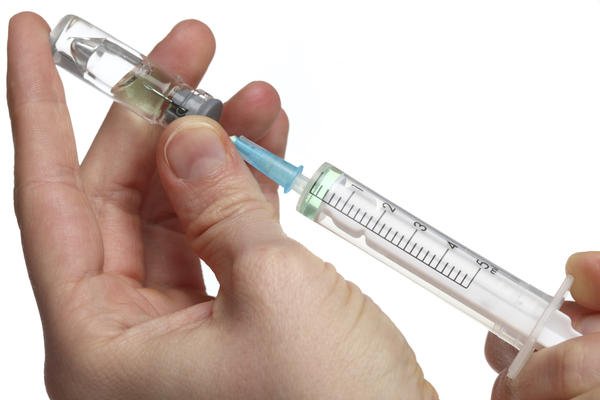
“Allergen immunotherapy”, or more commonly known as “allergy vaccines”, is a form of treatment based on the principle of giving the allergen in increasing doses to the patient over a period of years. This treatment results in the disappearance or drastic reduction of symptoms that would be expected following exposure to the allergen.
It is known that the beneficial effects of allergen immunotherapy depend on the production of some protective antibodies. There are also changes in the system called the cellular immune system, which regulates allergic responses. In summary, this treatment is not only a form of treatment aimed at suppressing the signs and symptoms specific to the disease (syptomatic) as in other drug treatments, but also a form of treatment aimed at changing the underlying mechanism and providing full recovery (curative).
Application:
Allergen extracts in varying concentrations are given to the patient by subcutaneous injection with allergy vaccines. In the first injection, a very small amount of the least concentrated extract is applied. Following this, the patient is administered the vaccine at increasing concentrations and doses each week. The final concentration to be achieved depends on the patient’s degree of sensitivity.



Generally, patients reach the last dose to be administered continuously about six months after starting the injections. Injections are applied at this dose once a week for a while, and then the intervals are gradually opened, and they are administered at intervals such as once in ten days, once in two weeks, once in three weeks and once in four weeks. Injections must be applied regularly to achieve maximum benefit. The average duration of treatment is four years.
Benefits:
Vaccine therapy is aimed at allergens with moderate to severe allergy symptoms lasting more than two to three months per year, who do not respond well to drug therapy or who have to use drugs continuously and cannot be avoided easily. for patients with sensitivity.
For example, a person who is allergic to grass and cereal pollen will have the highest level of allergic complaints in the spring and summer months. It is not possible to stay away from these allergens completely, as there will be intense pollen contact when going out of the house or opening the windows of the house for any reason. Medications usually control symptoms to some extent; However, most of the patients cannot use regular medication due to side effects such as drowsiness. Vaccine therapy would be the most appropriate option for such a patient. Similarly, vaccination is the most appropriate choice for patients with tree pollen and house dust mite allergies. Vaccination is also performed in fungal spore allergies.
Possible side effects:
Since the patient does not receive any medication with the vaccine treatment, and allergens to which the patient is allergic are administered, it is normal to have redness and mild swelling at the injection site, the size of a coin. Larger itchy redness and swelling at the injection site is called a “local reaction”. Antihistamine drugs and local ice application are sufficient for the treatment of local reactions. Systemic reactions, which may present with symptoms such as runny nose, sneezing, itchy eyes, shortness of breath, coughing and wheezing, are much rarer. In order to control these reactions that may develop, it is necessary to wait in the office/hospital for 20-30 minutes after the vaccination and to have the vaccination site checked by your physician.
Things to consider:
If you keep vaccines at home, keep them in the refrigerator. Never put in the freezer, do not freeze.
Transport your vaccine in a thermos filled with ice.
After vaccination, wait at the health center for at least 20 minutes.
Do not leave the health center without having your doctor check the vaccination site.
If there is a larger swelling and redness than usual at the injection site after the vaccine is administered, or if you experience general itching, redness, runny nose, sneezing, itchy eyes, shortness of breath, cough and wheezing, consult your doctor immediately. please report.
Do not take a shower, do not go to the sauna, do not drink alcohol and do not engage in sports activities that require heavy exercise for a few hours after vaccination.
Get your vaccinations done on regularly scheduled days without interrupting your appointments. If you miss your vaccinations, the dose and concentration of your vaccine will not be increased gradually, and your treatment will be inadequate / unsuccessful as a result.

